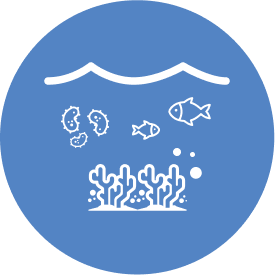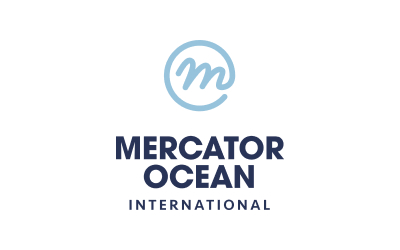Overview
This case is focused on improving the accuracy of ocean colour forecasts, with a focus on chlorophyll-a and primary production, as well as their underlying biogeochemical drivers. These parameters are vital for gaining a deeper understanding of oceanic ecosystems, carbon cycles, and fisheries management. The goal is to generate longer forecasts in a more resource-efficient manner by applying machine learning. This effort will also contribute to the broader objectives of the European Digital Twin of the Ocean (DTO), providing more accurate insights into seasonal ocean dynamics.
Challenge
Accurate forecasts of chlorophyll-a and primary production are essential for understanding ocean ecosystems, which play a vital role in global processes such as carbon cycling and the sustainability of fisheries. However, generating these forecasts is often challenging and resource-intensive due to the complexity and variability of oceanic conditions.
Solution
The proposed solution involves the strategic application of machine learning algorithms. These resource-efficient algorithms significantly enhance the accuracy of forecasts while operating at a fraction of the computational cost. This is possible because machine learning can effectively leverage vast amounts of data from various sources, and integrate these to learn patterns and relationships without the need for explicit guidance. Promising results have been achieved using neural networks to predict seasonal chlorophyll-a concentrations based on physical ocean forecasts. The plan is to expand these forecasts to include additional variables of interest, such as primary production, nutrients, and various types of plankton. Additionally, efforts will be directed towards refining the models to improve regional accuracy, ensuring that the forecasts remain relevant and useful at finer spatial scales.
Biological monitoring and sensor resources
At this stage, remotely sensed ocean colour data from GlobColour has been the primary dataset. Additional sources for more comprehensive biological monitoring will be integrated as the project progresses.
Data Sources
- Physical ocean data:
- The Global Ocean Reanalysis GLORYS12 from Mercator Ocean, which provides a comprehensive historical record of physical ocean conditions.
- Multi-member physical ocean forecasts from the SEAS5 system, which is produced by the ECMWF (European Centre for Medium-Range Weather Forecasts)
- Biogeochemical data:
- Remotely sensed ocean colour from GlobColour
Additional datasets will be incorporated as the project progresses.
Analysis Tools
So far, forecasts have been generated using convolutional neural networks, a widely used tool in computer vision. As the project evolves, a variety of data-driven approaches will be tested to determine the most effective method for each downstream task.
Expected outputs
Seasonal forecasts of ocean colour and the various biogeochemical parameters that modulate primary production.
- Chlorophyll-a: surface, near-global level forecasts have been generated based on physical ocean forecasts. The aim is to expand this to varying depth levels.
- Primary production and various plankton types
Target Stakeholders
Members of the scientific community in need of long-range biogeochemical forecasts for downstream applications, including ecosystem monitoring, carbon cycle analysis, etc. Local and regional decision-makers that can use this information for marine resources management.
Digital Twin Features Demonstration
- Enhance our ability to anticipate ecosystem responses to climate variability, and support early detection of changes linked to broader climate patterns
- Inform management strategies across sectors such as fisheries, aquaculture, algal bloom prediction, and ecosystem surveillance.
- Support “what-if” scenarios by providing a resource-efficient way to assess how changes in physical ocean conditions may impact biological processes, offering insights into ecosystem sensitivity and potential future outcomes.
Status
The first stage is ready for implementation.
Leaders
- Gabriela Martinez Balbontin (MOi)
- Stefano Ciavatta (MOi)
- Marina Tonani (MOi)

